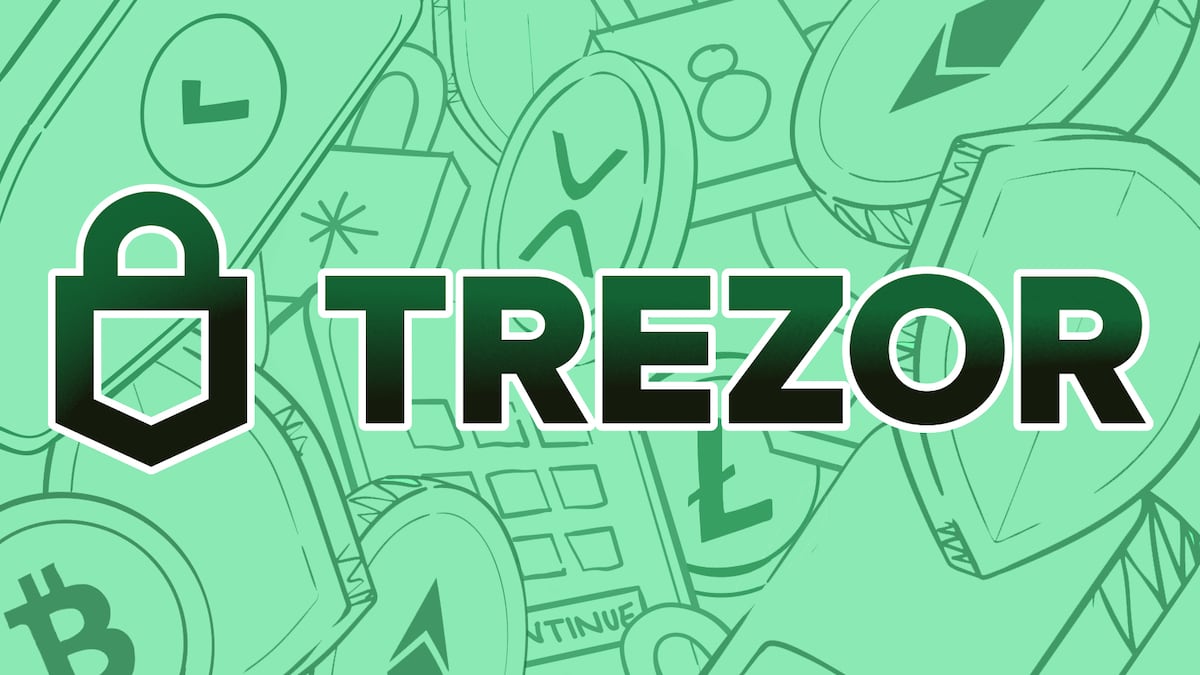Crypto adoption continues to climb, and so do the losses. In the first half of 2025, investors lost nearly $2.5 billion to hacks and scams worldwide, with wallet compromises and phishing attacks accounting for the vast majority of that figure.
These global figures show the scale of the threat, but to understand what these losses look like at an individual level, we can turn to the real experiences of users who participated in Trezor Expert sessions: one-on-one guidance meetings designed to strengthen self-custody habits.
This service exists because behind every loss is a real person who trusted the wrong link, mistyped an address, or overcomplicated their recovery setup, highlighting the human cost of a market where careful habits are the last line of defense. The examples below are drawn from Trezor Expert sessions and illustrate the kinds of challenges users bring to its specialists.
During the Trezor Expert session, specialists guide users step by step through checking device authenticity, installing firmware, creating and verifying backups, enabling passphrases, and practising recovery.
For those who already own a wallet, the session can also serve as a security audit, uncovering potential weaknesses such as outdated firmware, poor seed storage, or forgotten passphrase schemes. The service transforms setup from a one-time chore into a personalized masterclass in custody, and for many, it is the first time they get to ask questions and receive answers in real-time.
The Anatomy of a Scam
During Trezor Expert sessions, specialists often hear painfully familiar stories about scams, with promotional livestreams being a common trap. Some users describe watching long, convincing livestreams featuring well‑known figures and sending funds, thinking they were part of a promotion. The videos look professional, and the chat moves fast; urgency is part of the trap.
Others recount being contacted after a theft by so‑called recovery companies that promise help, but only after demanding the 24‑word seed. That moment of panic is when many hand over control of their wallets without realising what they have done.
Phishing remains a common issue. Users report receiving emails that appear exactly like exchange notices or wallet updates. Clicking the link downloads malware that runs silently in the background and changes copied addresses, so when funds are sent, they quietly go to the attacker. Some victims only realize this after multiple transactions have been drained.
Not all losses involve criminals. Several cases include funds locked on centralised exchanges that froze withdrawals, leaving users powerless. There are also stories of families struggling to recover a loved one’s crypto because the backups were scattered, protected with extra passphrases, or poorly labelled. The funds may still exist, but without the right information, they might as well be gone.
Increasingly Sophisticated Scams
Industry data confirms that these experiences are not isolated. Address-poisoning attacks have targeted more than 17 million users, resulting in over $83 million in confirmed losses. Researchers have tracked 270 million poisoning attempts across the Ethereum and BNB Chain networks. Meanwhile, AI‑powered scams have surged 456% year-over-year, using deepfakes, synthetic voices, and even interactive chatbots to mimic trusted figures and create a false sense of legitimacy. As crypto grows, these attacks become more professional and automated.
Preventing these losses does not require technical wizardry. It comes down to consistent, deliberate habits:
- Pause before acting. Scams thrive on speed. When confronted with time‑sensitive offers or threats, stop and verify the source.
- Verify independently. Navigate to websites manually, use saved bookmarks, and confirm messages through official channels rather than clicking links.
- Protect the seed. Your recovery phrase is the ultimate key. Store it securely offline and never share it. No exchange, wallet provider, or support agent will ever need it.
- Put hardware wallets to work. They block many remote attacks, but only if used correctly with updated firmware, a strong PIN, and a verified backup. A Trezor Expert session can ensure you are doing each step correctly.
- Keep recovery simple and straightforward. Complex setups can be just as hazardous as poorly designed ones. Document passphrases and instructions so that heirs can recover funds if necessary.
Building Wallet-Level Defenses
Research from Carnegie Mellon shows that attackers often poison transaction histories by sending tiny or even zero-value transfers to victims, creating lookalike addresses that appear trustworthy.
Their study proposes wallet-level defenses, such as highlighting first-time interactions, displaying extended address segments, and issuing warnings when multiple near-identical addresses appear in the history. Implementing these user interface cues and teaching users to check them dramatically lowers the risk of sending funds to a fake address.
Apart from the financial implications, the impact of a loss also affects one’s emotional well-being. It can erode trust in self-custody and drive users back to centralized platforms, where they face new risks such as withdrawal freezes or regulatory seizures. Good habits restore confidence and keep control where it belongs, with the user.
The global numbers indicate that crypto crime is becoming more expensive, yet also more preventable. Each verified link, each careful address check, each correctly stored backup is a layer of defence. Services like Trezor Expert shorten the learning curve and give users the confidence to handle their own security. With scams becoming more sophisticated and AI lowering the cost of deception, this kind of education is no longer optional. It is a critical part of staying solvent.
Restoring Confidence in Self-Custody
True confidence in self-custody comes from knowledge, constant practice, and the right technology. In a market where billions are lost every quarter, a hardware wallet like Trezor provides the foundational defence needed, isolating your keys from online threats and providing you with ultimate control. Mastering its features is what turns anxiety into competence, and competence into resilience.
For anyone looking to make self-custody safer, the journey to safer asset management starts today. By securing your keys with a proven hardware wallet and reinforcing good habits, you ensure every financial move you make is from a position of strength and safety.


